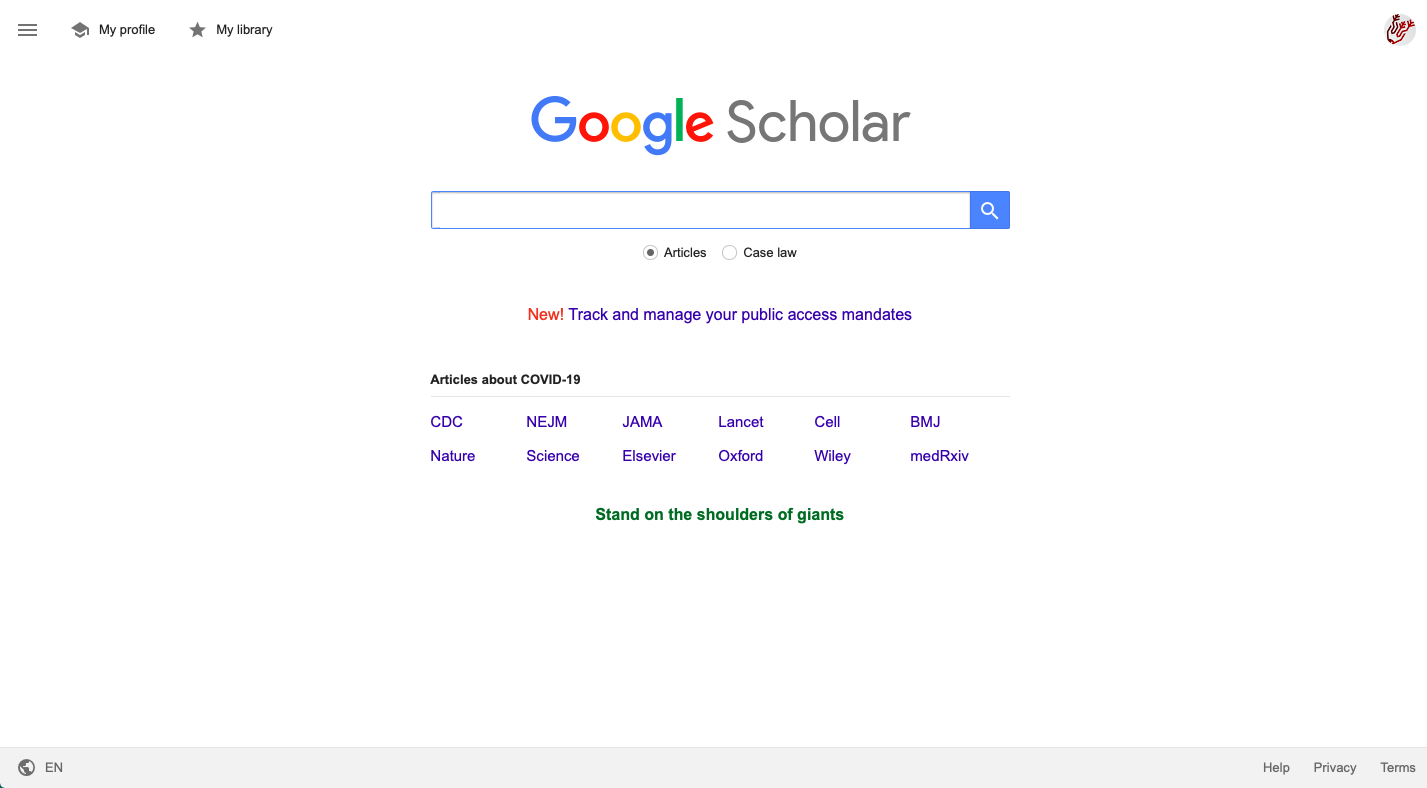Online databases involve scholarly and reviewed articles penned by highly qualified authors such as researchers, journalists, or experts in their field. In this article, you will find 10 free online databases for researchers. They offer intense search tools to narrow the results so that any student can easily collect the required information.

This article provides 10 free online journal and research databases for students and researchers. To give you an opportunity to practice proofreading, we have left a few spelling, punctuation, or grammatical errors in the text. See if you can spot them! If you spot the errors correctly, you will be entitled to a 10% discount.
In Academic writing, it is essential to cite references from reliable resources and databases, whether you are writing a dissertation, a thesis, coursework, or an academic paper. These databases involve scholarly and peer-reviewed articles penned by highly qualified authors such as researchers, journalists, or experts in their fields. Such databases offer intense search tools to narrow the results so that any student can easily collect the required information.
However, the problem is that most of the resources are protected by paywalls and substantial subscription fees. These fees and paywalls can be a burden to students and researchers. Well, suppose you are facing the same issues related to subscription fees while writing your undergraduate paper, your Ph.D. dissertation, or any other academic paper. In that case, you can use the following 10 online resources to produce high-quality and well-researched academic content.
Who does not know the name of Google Scholar? It is one of the most popularly used free search engines to facilitate the process of academic work. Most of the resources are free to use here. It is one of the best places to cite references. You can even download numerous papers for free.
Here are the features of Google Scholar published on their website:
Search all scholarly literature from one convenient place
Explore related works, citations, authors, and publications
Locate the complete document through your library or on the web
Keep up with recent developments in any area of research
Check who's citing your publications, create a public author profile

CORE is one of the most popular open-access research aggregators and it can be used as a search engine that offers open access research for free. With this, you can search about 66 million or more open access articles. CORE directly hosts more than 5 million pieces. It is an advanced search engine that allows you to filter the result at your convenience, followed by publications, journals, languages, authors, etc.
Public Library of Science (PLOS) is one of the most renowned open-access research organizations. It publishes several open access journals. PLOS is a nonprofit organization that is committed to facilitating the process of academic research. Most of the articles and journals available in PLOS are free to access. It means that all scientific papers are freely available to students.
ScienceOpen is an advanced research database, offering more than 28 million articles related to science. To access this, you need to register on this website for free. This site is made for detailed-oriented research. You can utilize the required filters to find the exact resources you need. This site was published to ease the procedure of academic research.
SSRN or Social Science Research Network is a database that facilitates the research of humanities and social science. As of 2021, this site contains about 846,588 research papers and more than 650,000 abstracts. However, you need to register as a member to have free access to papers. This site also offers you a chance to interact with scholars around the globe.
The Directory of Open Access Journals (DOAJ) is a popular database consisting of more than 10,000 open access journals and more than two million articles. It is an open-access database for high-quality journals. This site covers all the areas of science, medicines, technology, humanities, and social science. You can easily access this site to get free access to scholarly journals.
PubMed is a popular research platform for science and medical students. It allows students to get access to millions of citations related to biomedical literature and life science journals. This site is not protected behind huge subscription fees and paywalls.
However, this site is run by NCBI, a part of the National Library of Medicine. However, NCBI also operates a similar search engine to facilitate chemical research science known as PubChem that is also an open-access site.
British Library operates E-Theses Online Service (EThoS). It is a database that contains more than 450,000 doctoral theses. Most of the theories are free to access. These theses are either directly hosted by EThoS or university websites. However, you can filter your search and download the required dissertation immediately. All you need to do is to register on this website.
BioMed Central is one of the most trusted websites for journals related to biology, health, and clinical medicines. BioMed Central contains more than 300 peer-reviewed journals associated with the mentioned topics. You can quickly get access to these journals by browsing the subject. Moreover, you can use related keywords to get access to these journals.
Bielefeld University Library in Germany runs this popular website. The Bielefeld Academic Search Engine contains more than 90 million documents from over 4,100 sources. More than 50% of the content is free to access.
These are some examples of free online journals and research databases for researchers. However, apart from these sites, there are even other websites that you can utilize, but you need to make sure that the information you are using should be accurate. You can contact us to learn more.
Best Edit & Proof expert editors and proofreaders focus on offering manuscripts with proper tone, content, and style of academic writing, and also provide an upscale editing and proofreading service for you. If you consider our pieces of advice, you will witness a notable increase in the chance for your research manuscript to be accepted by the publishers. We work together as an academic writing style guide by bestowing subject-area editing and proofreading around several categorized writing styles. With the group of our expert editors, you will always find us all set to help you identify the tone and style that your manuscript needs to get a nod from the publishers.
You can also avail of our assistance if you are looking for editors who can format your manuscript, or just check on the particular styles for the formatting task as per the guidelines provided to you, e.g., APA, MLA, or Chicago/Turabian styles. Best Edit & Proof editors and proofreaders provide all sorts of academic writing help, including editing and proofreading services, using our user-friendly website, and a streamlined ordering process.
Visit our order page if you want our subject-area editors or language experts to work on your manuscript to improve its tone and style and give it a perfect academic tone and style through proper editing and proofreading. The process of submitting a paper is very easy and quick. Click here to find out how it works.
Our pricing is based on the type of service you avail of here, be it editing or proofreading. We charge on the basis of the word count of your manuscript that you submit for editing and proofreading and the turnaround time it takes to get it done. If you want to get an instant price quote for your project, copy and paste your document or enter your word count into our pricing calculator.
Contact us to get support with academic editing and proofreading. We have a 24/7 active live chat mode to offer you direct support along with qualified editors to refine and furbish your manuscript.
Follow us on Twitter, LinkedIn, Facebook, Instagram, and Medium.
For more posts, click here.
How to Determine Variability in a Dataset
14.10.2023
How to Determine Central Tendency
19.02.2023
How to Specify Study Variables in Research Papers?
14.01.2023
Population vs Sample | Sampling Methods for a Dissertation
14.01.2023
How to Ensure the Quality of Academic Writing in a Thesis and Dissertation?
04.12.2022
How to Avoid Anthropomorphism in Your Dissertation?
04.11.2022
How to Write a Research Paper After Finishing a Dissertation or a Thesis
28.08.2022
How to Write a Research Methodology Section for a Dissertation and Thesis
07.08.2022
How to Write a Theoretical Framework for a Dissertation and Thesis?
05.08.2022
How to Write Literature Review for a Dissertation and Thesis
02.08.2022

The writer is expected to be very selective with the style and approach of writing custom-made. Here in this article, the primary and essential elements to be taken under consideration while developing engaging content will be illustrated. This article discusses 9 basic principles for effective content writing.
Continue Reading
For writers starting, paraphrasing might seem quite a difficult thing to master. However, everything can become better with practice and some good advice. Therefore, if you are getting into the world of academic writing and want to know how to paraphrase like a pro, we have a few tips that you might find helpful. This article discusses the basic steps of successful paraphrasing.
Continue Reading
Whether it is an academic essay or any other thesis paper, all the papers are directly or indirectly associated with one’s future. Therefore, making mistakes here means compromising with the future. However, students are fond of making some habitual errors while composing an academic paper. Let’s learn those mistakes and make sure not to repeat them in your turn.
Continue Reading
What is academic writing? In simplest words, academic writing is a style of writing used in the academic field and adopted by academic institutions or scholarly publications. You might encounter academic writing in peer-review journals, books, articles, and you are expected to write your manuscripts, dissertations, essays, or thesis in the academic style. Academics and students use this style to convey complex ideas and theories clearly and precisely to their readers. Therefore, as a student, especially for the ones getting higher education, it is needed for you to learn this way of writing and adopt it.
Continue Reading
Choosing a topic for your dissertation or thesis at the end of your master's or doctoral study can become a daunting task. You must select a topic that you find interesting to work on. A dissertation/thesis is a crucial piece of work as it carries enormous credit points at the end of the master's study or postgraduate year. Therefore, you must choose the right and the most suitable topic. Here are some helpful tips for choosing a dissertation and thesis topic that suits you the most.
Continue Reading